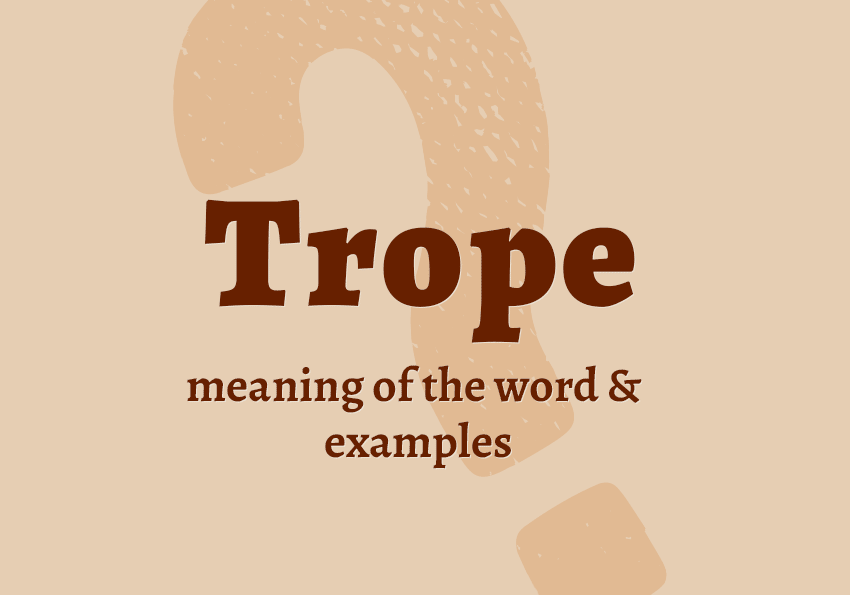Trope – what does it mean? Origin, meaning and examples in sentences
What is complacent? First of all, it is an adjective, but do you know what it means? Does it only refer to people or can you use it to describe a smile or attitude? This article will provide you with some guidance. Don’t be complacent about the meaning and usage of this word before you read this text!

Trope – origin
The word trope (/trəʊp/) derives from Greek tropos and has its roots in Proto-Indo-European form *trep-, which means: “to turn”. It is then a word of considerable history. Trope has been present in the English language since the 1530s.
Trope – what does it mean?
Trope has two basic meanings in English. The first definition tells us that a trope denotes a figure of speech; a word or phrase used figuratively. This meaning closely follows the Greek sense of the word. See the examples below:
Old English poetry is characterised by a number of poetic tropes which enable a writer to describe things indirectly and which require a reader imaginatively to construct their meaning. The most widespread of these figurative descriptions are what are known as kennings.
Ronald Carter, The Routledge History of Literature in English: Britain and Ireland, 1997
Even the most ingenuous metaphors are made from the detritus of other metaphors – language speaking itself, then – and the line between first and last tropes is very thin, not so much a question of semantics as of the pragmatics of interpretation.
Umberto Eco, Semiotics and the Philosophy of Language, 1984
Trope – what does it mean? Second definition
According to the second, less positive definition, trope is “a recurring idea or motif in an artistic genre” or “a common or overused theme”; namely a cliché, banality or truism, e.g.:
Just bear a passing resemblance to a fictional romantic trope I like and I will love you forever. We’re all just trying to find the Mark Darcy of our workplace, aren’t we?
Mindy Kaling, Why Not Me?, 2015
Clichés are relatives of the fairy tale, and tropes aren’t bad; they go with the territory.
Seanan McGuire, Indexing, 2014


